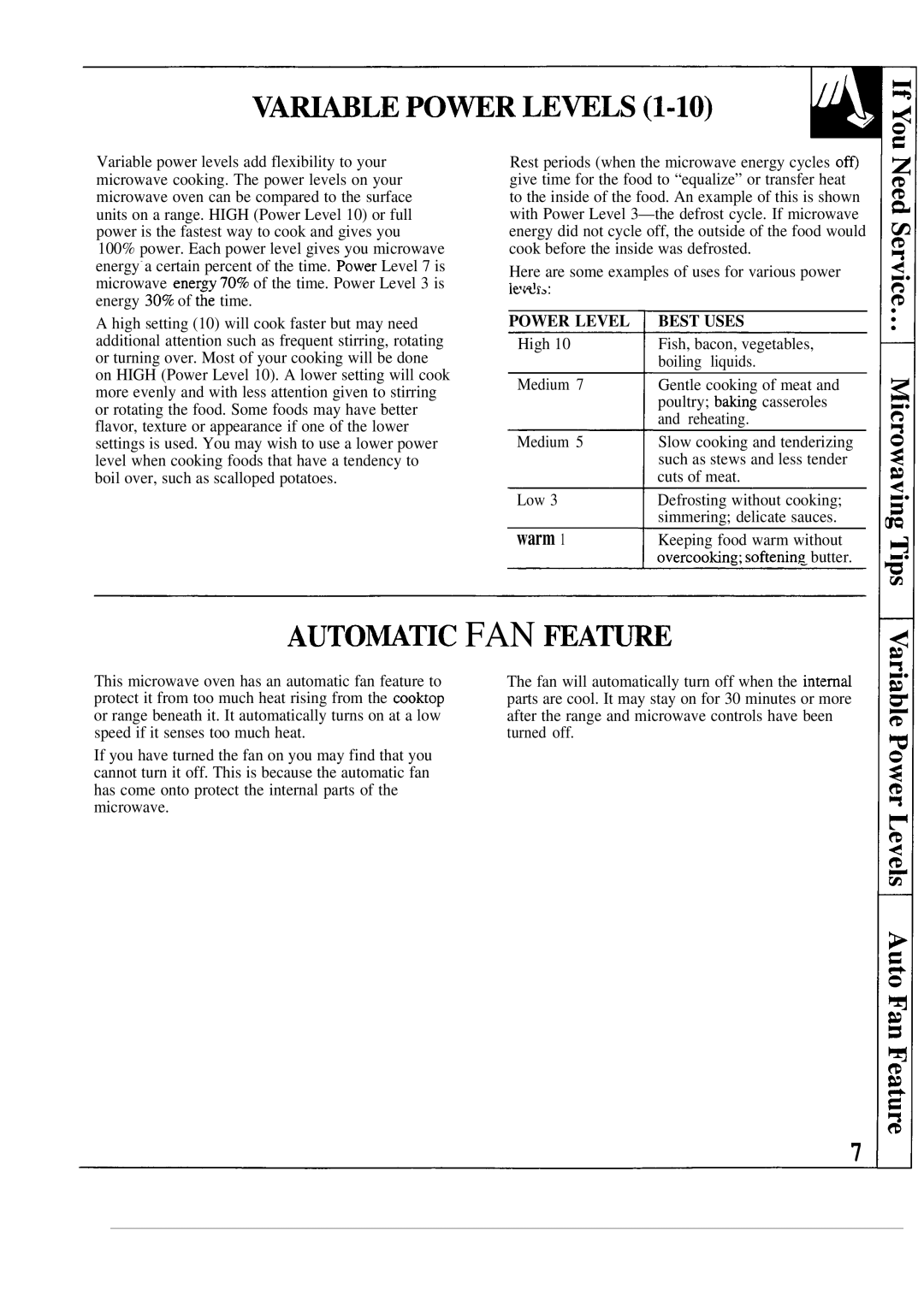
Variable power levels add flexibility to your microwave cooking. The power levels on your microwave oven can be compared to the surface units on a range. HIGH (Power Level 10) or full power is the fastest way to cook and gives you
100% power. Each power level gives you microwave energy- a certain percent of the time.
Rest periods (when the microwave energy cycles o~ give time for the food to “equalize” or transfer heat to the inside of the food. An example of this is shown with Power Level
Here are some examples of uses for various power
Ia.,alc .
Lbvbl>.
A high setting (10) will cook faster but may need additional attention such as frequent stirring, rotating or turning over. Most of your cooking will be done on HIGH (Power Level 10). A lower setting will cook more evenly and with less attention given to stirring or rotating the food. Some foods may have better flavor, texture or appearance if one of the lower settings is used. You may wish to use a lower power level when cooking foods that have a tendency to boil over, such as scalloped potatoes.
POWER LEVEL
High 10
Medium 7
Medium 5
Low 3
warm 1
BEST USES
Fish, bacon, vegetables, boiling liquids.
Gentle cooking of meat and poultry; baking casseroles and reheating.
Slow cooking and tenderizing such as stews and less tender cuts of meat.
Defrosting without cooking; simmering; delicate sauces.
Keeping food warm without overcooking; softening butter.
AUTO~TIC FAN FEA-
This microwave oven has an automatic fan feature to protect it from too much heat rising from the cooktop or range beneath it. It automatically turns on at a low speed if it senses too much heat.
If you have turned the fan on you may find that you cannot turn it off. This is because the automatic fan has come onto protect the internal parts of the microwave.
The fan will automatically turn off when the intemd parts are cool. It may stay on for 30 minutes or more after the range and microwave controls have been turned off.
7
